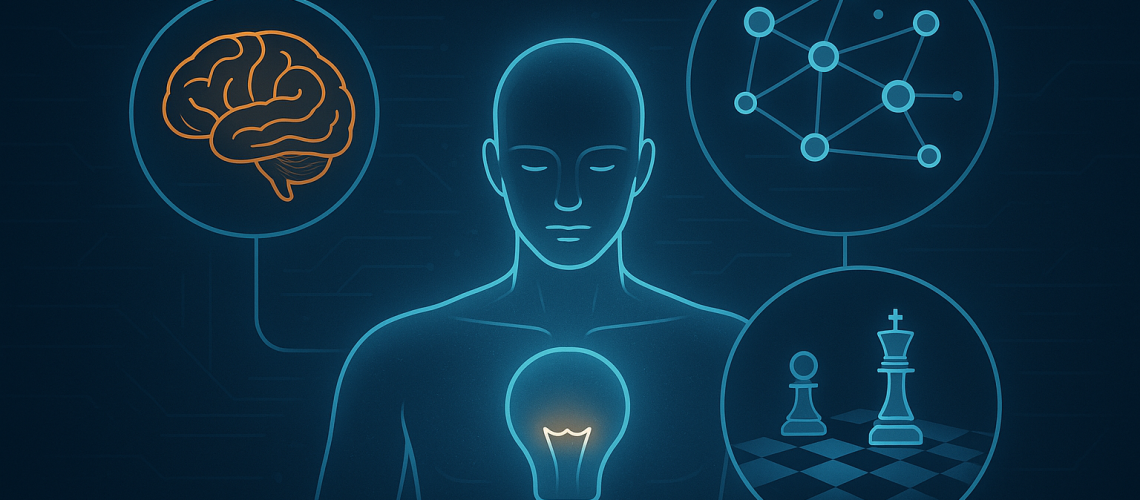Most AI systems today can crunch numbers or recognize patterns, but true intelligence goes further. An intelligent agent doesn’t just react—it remembers past experiences, reasons about new situations, and plans toward long-term goals. This is where memory, cognition, and planning come together to shape AI that behaves less like a calculator and more like a strategist.
What Is an Intelligent Agent?
An intelligent agent is any system that perceives its environment, reasons about it, and takes actions to maximize its goals. Examples include:
- Self-driving cars that navigate traffic.
- Digital assistants that remember your preferences.
- Robots that adapt to changing tasks.
The distinction lies between:
- Reactive systems → respond immediately (e.g., a thermostat).
- Goal-driven agents → use memory, reasoning, and planning to adapt over time.
The Role of Memory in AI
Memory is the foundation of intelligence. Without it, every decision is isolated. Intelligent agents need:
- Short-term memory → holds immediate context.
- Long-term memory → stores knowledge and experiences.
- Episodic memory → remembers specific events.
- Semantic memory → stores general facts and rules.
💡 Example: A customer-support chatbot that remembers your last query offers a much smoother experience than one that starts fresh every time.
Cognition: The AI’s Thinking Process
Cognition is how agents interpret the world and reason about it. Just like humans, they cycle through:
- Perceiving data (text, sensors, images).
- Reasoning about possible actions.
- Deciding the best path forward.
💡 Example: A medical AI assistant observes symptoms, recalls medical knowledge, and reasons through possible diagnoses before recommending treatment.
Planning for Goal-Driven Behavior
Planning separates intelligence from reactivity. Instead of reacting step by step, agents simulate futures and choose the best path.
- Hierarchical planning → breaking down big goals into smaller steps.
- Probabilistic planning → handling uncertainty in dynamic environments.
💡 Example: An autonomous drone delivering packages must plan its route, avoid no-fly zones, and adapt to sudden weather changes.
Integration: Memory + Cognition + Planning
The real power emerges when these three components work together:
- Memory supplies past knowledge.
- Cognition interprets and reasons.
- Planning charts the course.
Together, they create agents that learn, adapt, and act purposefully.
Challenges and Future Directions
Designing such agents is not easy. Some challenges include:
- Scalability of memory → efficiently storing/retrieving vast data.
- Robust reasoning → dealing with ambiguity.
- Ethical design → ensuring fairness, accountability, and transparency.
Opportunities: healthcare (patient histories), robotics (autonomous machines), transportation (self-driving cars), customer support (context-aware chatbots).
Conclusion
True intelligence is not reaction—it’s purposeful, goal-driven behavior. By combining memory, cognition, and planning, AI agents are moving closer to systems that think, adapt, and act strategically.
Frequently Asked Questions
1. What is an intelligent agent in AI?
An intelligent agent perceives, reasons, and acts to achieve goals—examples include self-driving cars and digital assistants.
2. How is a goal-driven agent different from a reactive agent?
Reactive agents respond instantly; goal-driven agents remember, reason, and plan long-term.
3. Why is memory important for intelligent agents?
Memory lets agents learn from past experiences and maintain context across tasks.
4. What does cognition mean in AI?
Cognition is how AI perceives, reasons, and makes decisions—similar to human thought processes.
5. How do AI agents use planning?
They simulate futures, break goals into steps, and adapt strategies.
6. What are the main challenges in designing intelligent agents?
Scalability, reasoning under uncertainty, and ethical implications.
7. What industries benefit most from intelligent agents?
Healthcare, robotics, transportation, customer service, and digital assistance.
Unlock the Power of Goal-Driven AI
From designing memory systems to building cognitive reasoning and strategic planning — we help you create intelligent agents that adapt, learn, and achieve real impact.




